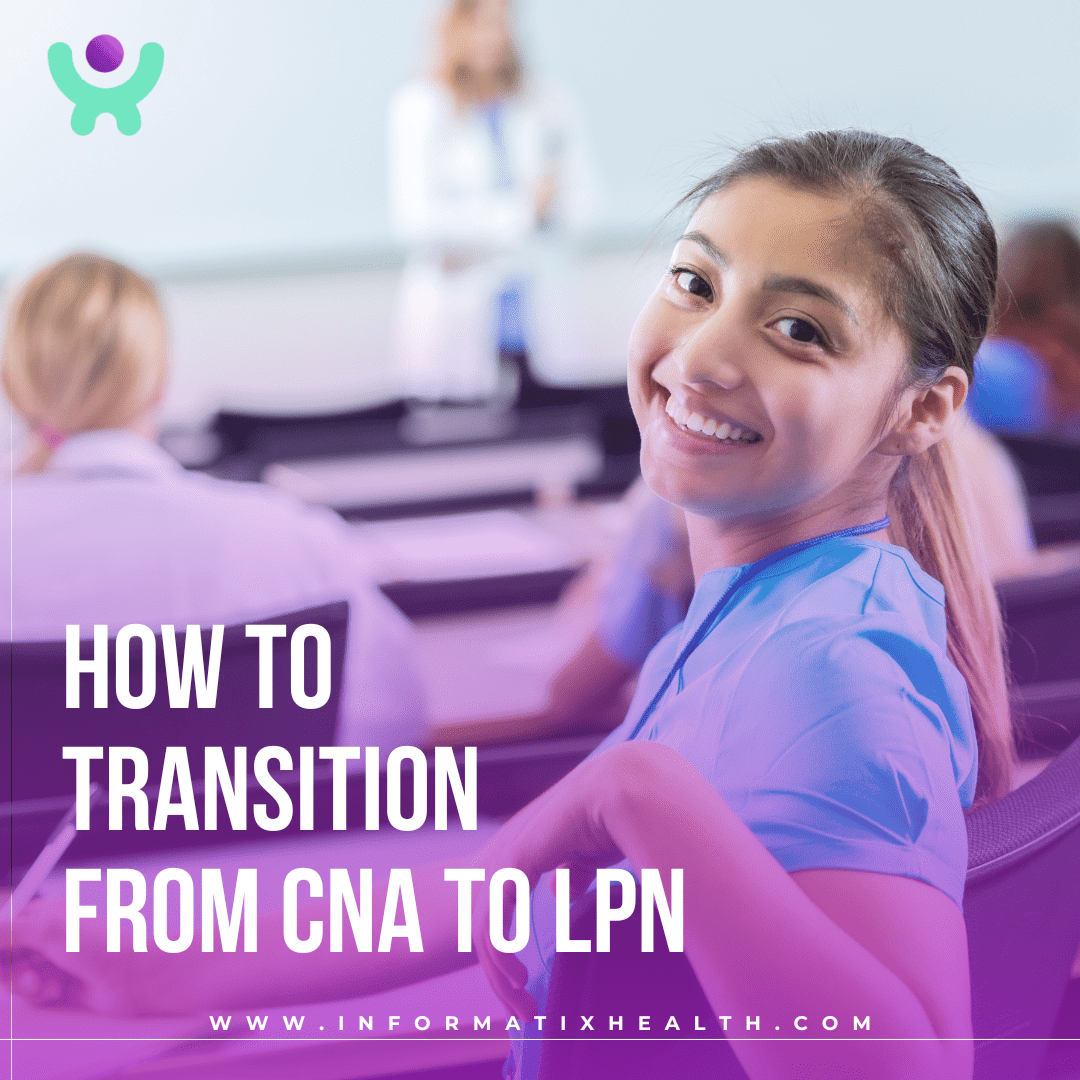CNA to LPN transition programs are designed to help Certified Nursing Assistants (CNAs) advance their careers by becoming Licensed Practical Nurses (LPNs). These programs provide the necessary education and training to bridge the gap between the two roles, often offering a streamlined curriculum that acknowledges the CNA’s existing knowledge and experience.
Key Features of CNA to LPN Transition Programs
- Accelerated Curriculum
- Many programs offer an accelerated path for CNAs, allowing them to complete the LPN program more quickly than traditional LPN programs.
- Courses cover advanced nursing concepts, pharmacology, anatomy, and patient care, building on the CNA’s foundational skills.
- Prerequisites
- Active CNA certification and a high school diploma or GED.
- Some programs may require a certain amount of work experience as a CNA.
- Coursework and Clinical Training
- Theoretical coursework includes subjects like medical-surgical nursing, pediatric nursing, and geriatric nursing.
- Hands-on clinical training in various healthcare settings, such as hospitals, nursing homes, and clinics.
- Program Length
- Typically ranges from 12 to 18 months, depending on whether the student attends full-time or part-time.
- Licensing Preparation
- The program prepares students to take the NCLEX-PN (National Council Licensure Examination for Practical Nurses), which is required to become a licensed LPN.
- Flexible Learning Options
- Many programs offer flexible scheduling options, including evening, weekend, and online classes, to accommodate working CNAs.
Benefits of Transitioning from CNA to LPN
- Increased Responsibilities: LPNs have more responsibilities and a broader scope of practice compared to CNAs.
- Higher Salary: LPNs typically earn a higher salary than CNAs due to their advanced skills and greater responsibilities.
- Career Advancement: Becoming an LPN can serve as a stepping stone for further career advancement, such as becoming a Registered Nurse (RN).
Finding CNA to LPN Programs
- Community Colleges: Many community colleges offer CNA to LPN transition programs.
- Vocational Schools: Technical and vocational schools often provide these programs with hands-on training.
- Online Programs: Some schools offer hybrid programs that combine online coursework with in-person clinical training.
Example Programs
- Local Community Colleges: Check your local community college for CNA to LPN bridge programs.
- Technical Institutes: Vocational schools often have specific programs designed for CNAs looking to become LPNs.
- Online Options: Schools like Achieve Test Prep offer hybrid programs that combine online coursework with local clinical practice.
Steps to Enroll
- Research Programs: Look for programs that fit your schedule and career goals.
- Check Prerequisites: Ensure you meet all entry requirements, such as CNA certification and any necessary coursework.
- Apply: Complete the application process for your chosen program.
- Financial Aid: Explore financial aid options, including grants, scholarships, and loans.
- Complete the Program: Successfully complete the coursework and clinical training.
- Take the NCLEX-PN: Pass the licensing exam to become a licensed LPN.
Transitioning from a CNA to an LPN is a significant step that can lead to greater career opportunities and professional growth.


